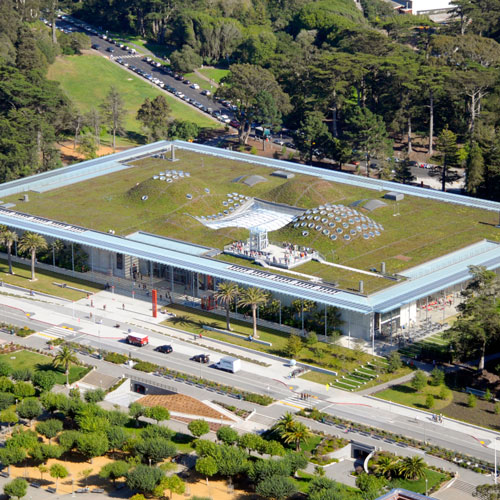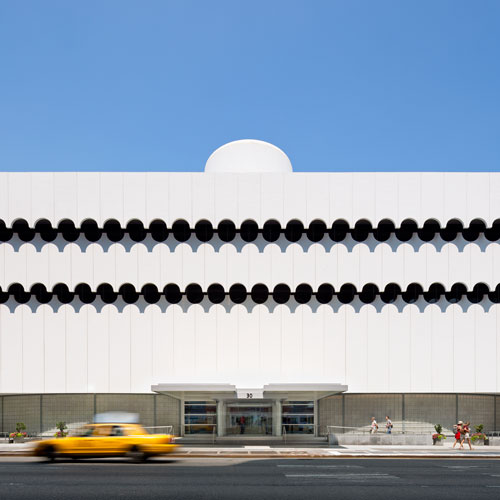Ironstate Development Company proved once again in 2014 the effectiveness of its business model, which focuses not just on the development of buildings but the rejuvenation of entire neighborhoods.
It was in this year that Ironstate, in collaboration with the Pegasus Group, opened an Element by Westin hotel in Harrison, New Jersey. The project was one of the latest in Ironstate and Pegasus’s nearly 15-year relationship with the Town of Harrison, redeveloping a section of the city’s former industrial district along the Passaic River and a quick 20-minute ride from New York City on the Port Authority Trans Hudson (PATH) line.

The town adopted its Harrison Waterfront Redevelopment Plan in 1998 and began working with Ironstate and Pegasus in 2001. The first phase of their redevelopment comprised 275 rental units and 12,814 square feet of retail space, and leasing for it launched in September 2011. The second phase, the 136-room Element Harrison–Newark Hotel, which just received LEED Silver certification, opened in August 2014. The third phase, comprising 329 rental units and 8,700 square feet of retail space, is well under construction and will come to market later this year. In the end, in total, there will be 2,600 luxury residences and 80,000 square feet of retail and hotel space surrounding Harrison Station.
The development represents the vision of David and Michael Barry, who now lead Ironstate, which was founded by their father and grandfather. They believe that creating neighborhoods where people can live, work, and play is the key to successful development. When people take the PATH to Harrison’s Red Bull Arena, for example, they will now encounter not a declining manufacturing town but an easily accessible community where one might live or launch a business. “We’ve tried to create a new paradigm for how people can live and work in the city in a way that is community-oriented,” says Barbara Stack, Ironstate’s general counsel, who has been with the firm for 20 years.
The company didn’t always have this vision. When it first launched, it focused purely on multifamily residential buildings developed through the creative use of government funding. “We tended then, as we still do, to go into urban neighborhoods that are transitioning,” says Stack, pointing to Hoboken, New Jersey, as an example. “We were the first developer to start building market-rate housing in Hoboken, which largely, as a result of our projects, has become something like a sixth borough of New York City.”
In the mid-1990s, the company began expanding beyond multifamily residential, developing, for example, a mixed-use development in Hoboken at the site of the former Bethlehem Steel shipyard. The project, called Shipyard at Hoboken, comprises approximately 1,200 apartments, 45,000 square feet of commercial space, a marina, a public park, a waterfront promenade, and a pier.

Later, in 2005, Ironstate broke ground on the 225-room W Hotel in Hoboken, which included 40 for-sale condominium units. The building’s site was unique, having been a point of embarkation for ships during World War II, and Ironstate partnered with the City of Hoboken and the Port Authority of New York and New Jersey, which owned the land and air rights, respectively, to develop the hotel. “I worked long and hard with them to negotiate a 99-year ground lease that was marketable and financeable as 41 leasehold condominium units—one being the hotel and the remainder being condominium apartments,” Stack says. Designed by well-known architectural firm Gwathmey Siegel Kaufman & Associates, the hotel is now a signature element of the Hoboken waterfront.
Ironstate has also expanded geographically to other parts of New Jersey, including Long Branch. A luxurious oceanside resort for much of the 20th century, the town was crippled when a fire destroyed its amusement pier in 1987. In 2002, though, Long Branch chose Ironstate to lead an ambitious effort to restore its oceanfront property with a premier development comprising 120,000 square feet of retail space, 650 units of housing, and amenities such as boardwalks and public parks. Development of the area continued through 2009, with Ironstate opening the Bungalow, a boutique hotel.
This year, Ironstate will develop the tallest buildings in New Jersey in partnership with Mack-Cali Realty Corporation. The three 69-story residential towers, collectively known as URL Harborside, are based on the Ironstate’s urban ready life (URL) concept—the idea being to provide housing that maximizes space, is environmentally sustainable, and offers easy access to public transportation. Located on the Jersey City waterfront, the $291 million development will ultimately offer more than 2,300 residences overlooking the Manhattan skyline. The first phase, consisting of 793 units, is slated for completion in 2016.
It’s clearly been a busy two decades for Stack, who’s spent most of her career at Ironstate. After earning a bachelor’s degree in urban planning, she worked for the Hoboken Community Development Agency while attending law school, ultimately landing at Ironstate in 1993. In the early days, she did all the company’s legal work, collaborating with city officials and handling all the company’s acquisitions, financing, and contracts. As the company has grown, however, she has coordinated more with outside counsel. “I’ve met a lot of lawyers who are focused on what you can’t do, but I always try to make sure we can make it happen, so my role has been part legal and part business,” she says.


